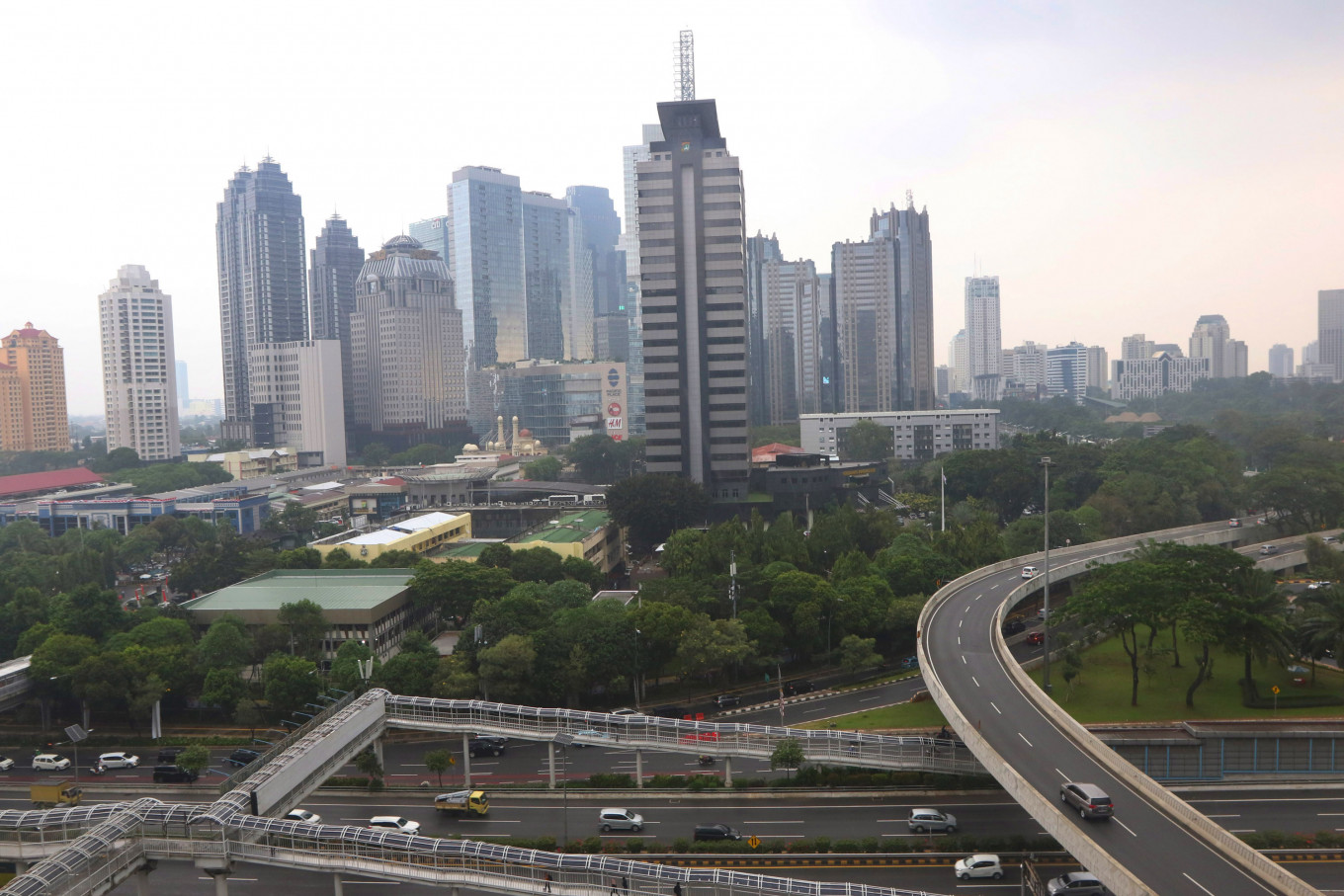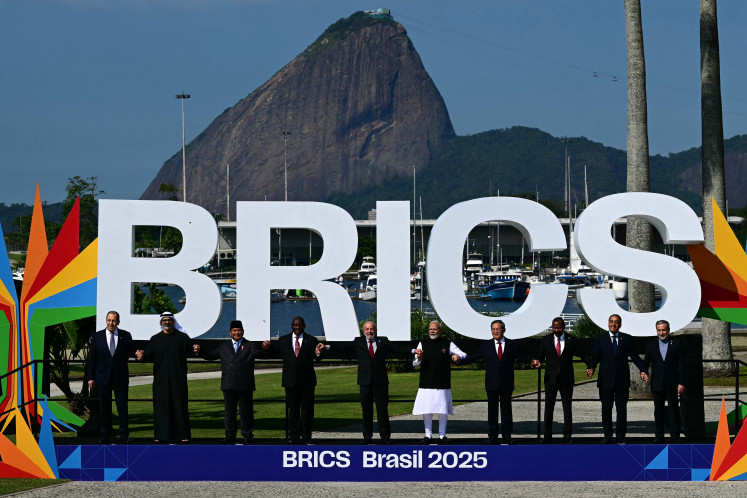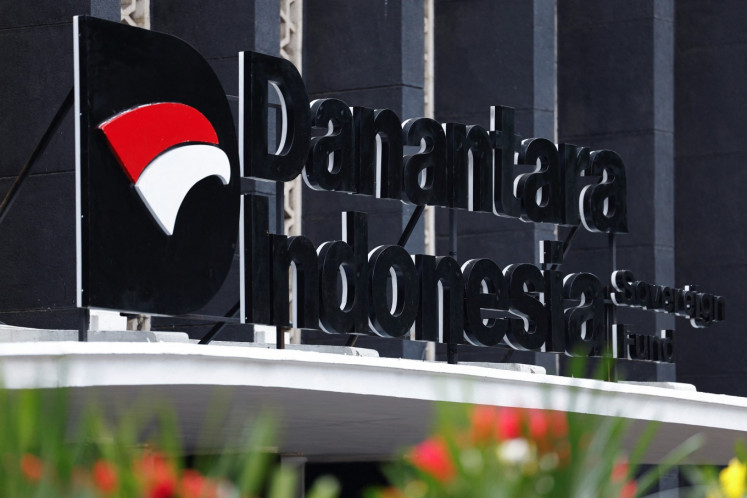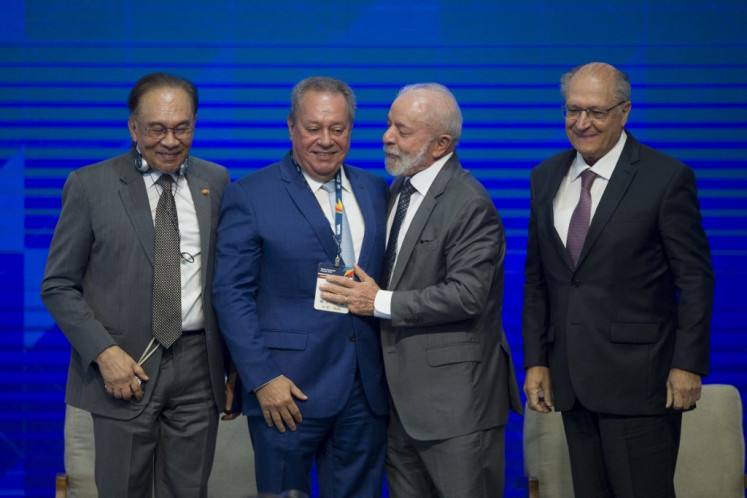Popular Reads
Top Results
Can't find what you're looking for?
View all search resultsPopular Reads
Top Results
Can't find what you're looking for?
View all search resultsHSBC helps promote foreign investment in post-pandemic Indonesia
HSBC continues to play a significant role as the preferred financial partner for clients and as part of Indonesia’s growth story as the country seeks to become one of the world’s largest economies by 2030.
Change text size
Gift Premium Articles
to Anyone
H
SBC continues to play a significant role as the preferred financial partner for clients and as part of Indonesia’s growth story as the country seeks to become one of the world’s largest economies by 2030. The bank has noted the importance of foreign direct investment (FDI) in achieving that goal. After the COVID-19 pandemic, Indonesia is looking to foreign investment to accelerate the country on the road to financial recovery and, eventually, growth.
“Indonesia is a key priority market for HSBC. We have been promoting and facilitating FDI in Indonesia for over 135 years, connecting Indonesia to the world and the world to Indonesia,” said Eri Budiono, Commercial Bank Director at PT Bank HSBC Indonesia. “As the largest economy in ASEAN [with 35 percent of the regional GDP and 40 percent of the region’s population], Indonesia is an attractive FDI destination owing to its massive domestic market, young population, fast growing digital economy and growing middle class.”
According to the Investment Ministry, investment realization from January to June 2021 was Rp 442.8 trillion, or 49.2 percent of the whole-year target of Rp 900 trillion. Rp 228.5 trillion of this was attributed to FDI, which accounted for 51.6 percent of the total investment realization in the period and was responsible for employing 292,401 Indonesian workers.
The increase followed the passage of the Job Creation Law at the behest of the President Joko “Jokowi” Widodo administration in November 2020. The new law stated that all businesses were open to investment, as long as they followed the provisions of the jobs law and did not involve certain activities reserved for the central government. In a move to ease restrictions and attract more FDI, most business sectors can now be 100 percent foreign-owned without the previous Rp 100 billion capital requirement, while start-ups located in special economic zones (SEZ) are entitled to a reduced minimum capital requirement.
While investments from Asian countries continue to be dominant in the country, players from the United States and Europe are needed to encourage global investors to place their confidence in Indonesia. This year, the top five biggest FDI contributors to Indonesia were Singapore, Hong Kong, China, the Netherlands and South Korea, based on data published by the Investment Ministry. More information about how the bank can help corporations can be found here.
“As other countries are also competing for FDI, Indonesia needs its investment engine to run even faster and to intensify its efforts to promote investment in the country,” said Charles Kho, Head of International Subsidiary Banking (ISB), PT Bank HSBC Indonesia.
“Our comprehensive international banking proposition puts HSBC in a unique position to best service the multinational companies operating in Indonesia across various investment cycles, be they new investors to the country or existing investors that are looking to further expand their business Indonesia. They require a trusted global banking partner that is well-known at the parent level but also able to deliver compelling and consistent services at the Indonesia subsidiary level. We help our clients to realize their growth ambitions,” said Kho.
An opportunity to attract more foreign investment is about to present itself, as Indonesia will host the Group of 20 and Business of 20 Summit in 2022. There, the country will be able to showcase once again that Indonesia is indeed a great destination for FDI.
The number of FDI fell 2.7 percent year-on-year to Rp 103.2 trillion in the September quarter of 2021. However, the number is predicted to rise in 2022 with FDI towards Hyundai and Toyota in electric vehicle (EV) industry. According to HSBC’s global research entitled “The Stars Align,” The first plant to process Indonesia’s nickel reserves into nickel and cobalt hydroxide, chemicals used for lithium batteries, has already started production in May and two other plants to produce finished EV batteries are under construction by Chinese and Korean companies.
Furthermore, the government also recently declared at the United Nations Climate Change Conference (COP26) that the country had increased its climate ambitions to reach net-zero emissions by 2060 at the latest, a decade faster than previously estimated. The commitment has shifted sectors into renewable energy and away from fossil fuels and their kin.
As aforementioned, one of the sectors highlighted in the near future is the EV industry, as the country seeks to become the electric vehicle production hub of the region, aiming for an output of 600,000 electric cars and 2.5 million electric motorcycles by 2030, as well as to become a key player in the global supply chain of lithium-ion batteries in line with the industry.
Industry Minister Agus Gumiwang Kartasasmita told Investor Daily Summit in July, “Indonesia’s key advantage in the EV industry is the nickel-based lithium-ion battery because we have world’s biggest nickel reserves.” He also revealed that nine companies were ready to support the battery industry.
Meanwhile, Indonesia is seeing an increase in equity inflows as its tech sector comes into focus. An IPO pipeline over the next 12 months will likely become a catalyst for further investment, including as much as US$4 billion, courtesy of GoTo (Gojek-Tokopedia). It was recently announced that the GoTo ecosystem was responsible for 1.6 percent of the country’s GDP.
"This is an exciting time for Indonesia as the government is focusing on future growth drivers, such as the digital economy and EV battery supply chain. In addition, Indonesia is committed to supporting the transition to net-zero in line with the pledge made during COP26. This ambition is aligned with HSBC’s strategic objectives in terms of delivering digital and innovative solutions to our clients, supporting inbound investments into Indonesia and helping our clients transition to lower carbon footprints," Budiono said.










